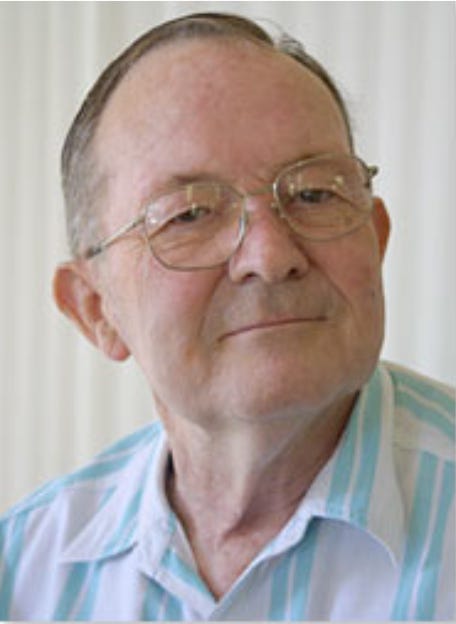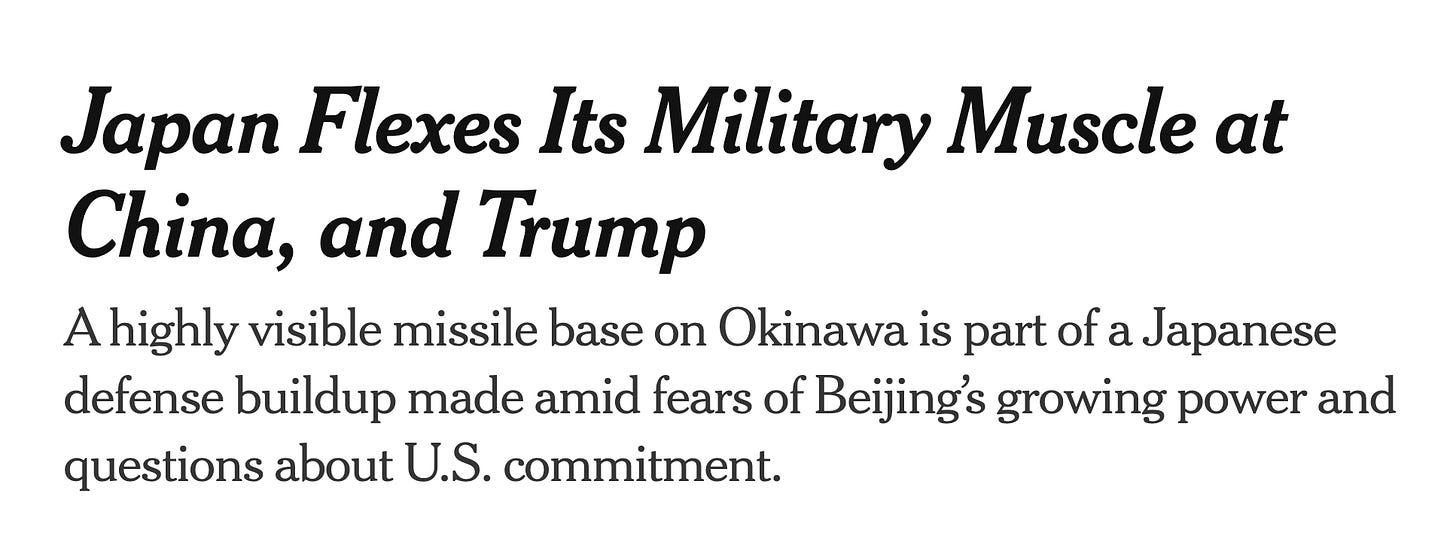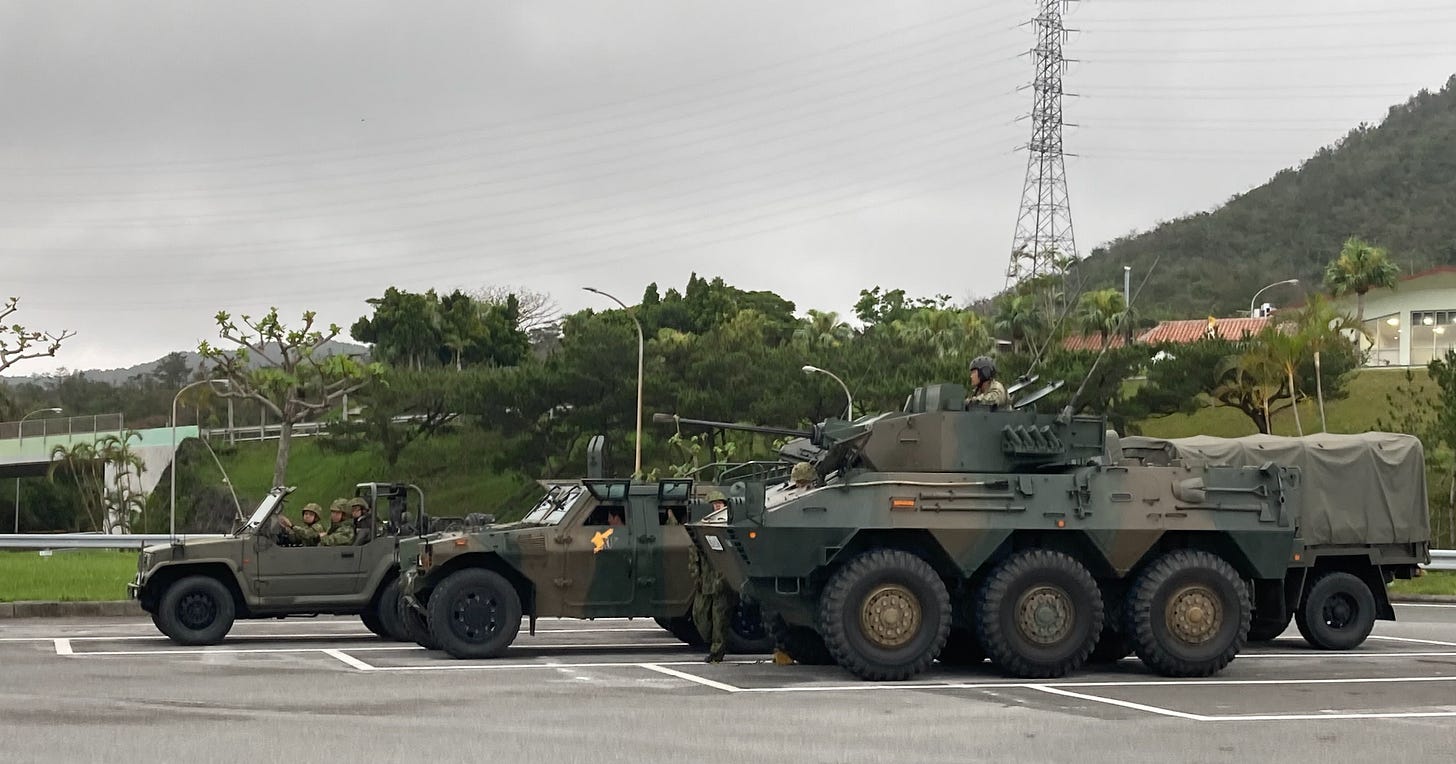Chalmers Johnson, Presente!
The author of BLOWBACK was a mentor to me and helped place me in the pantheon of American journalism. I owe him a great debt.
A few days ago, I posted a video in my Notes of Chalmers Johnson, the late, great historian of East Asia, speaking to a Washington crowd about economic development in Japan and South Korea. I mentioned that Chal, as he was known to friends, had been an important mentor to me in the late 1990s and had written me into his classic book on empire, BLOWBACK. Today, on my website The Shorrock Files, I found the tribute I wrote to Chal on the day he died, November 21, 2010, 15 long years ago. Out of respect to his memory as we enter a new phase in the forever wars he often wrote about, I present my tribute to him, just as it appeared back then. If you haven’t read his books, I highly recommend that you do. They just might blow your mind.
A Tribute to Chalmers Johnson
In February 1996, I broke a major story on U.S. foreign policy, reporting for the first time how the United States government and the Carter administration had secretly backed the South Korean government in its 1980 crackdown on a nation-wide movement to end military rule. The May 1980 coup led directly to the massacre of hundreds of activists and citizens by South Korean Special Forces in the southwestern city of Gwangju.
The stories appeared on the first day of the trial in Seoul of the two generals and former presidents who had led the coup, Chun Doo Hwan and Roh Tae Woo.. Both were later convicted for murder and treason and eventually pardoned by President Kim Young Sam.
My revelations were a sensation in South Korea. But they were virtually ignored by the U.S. media, including both the New York Times and the Los Angeles Times, which had covered the 1980 events in detail but had no interest in reporting on the U.S. role in tragedy.1 I concluded, rightly, that nobody here really cared, and went back to my regular beat, covering global trade, labor, and shipping for the Journal of Commerce.
Then, about 10 days after my stories appeared, a three-page, single-spaced fax came into my newsroom at the National Press Building in Washington from a telephone number in San Diego. It was from Chalmers Johnson, a former professor of Asian Studies at the University of California who I knew by reputation as an excellent writer and commentator on Japan, Asia and U.S. foreign policy.
In the fax, Chalmers praised my stories and said they had confirmed what he has always suspected about the U.S. role in South Korea during the Cold War, which he was then investigating for a book that he would later publish under the title of BLOWBACK: The Costs and Consequences of American Empire. To make sure that my work received broader coverage, he invited me to speak at a conference he was organizing on the legacy of the Cold War in Asia later that year in San Francisco.
There, I met Chal, as I came to know him, and presented my findings on Gwangju. I also met many of Chal’s friends and colleagues. That conference was a turning point in my writing career, lifting me out of journalist obscurity and putting me in touch with many other writers and analysts who I’d long admired from afar.
An even greater surprise greeted me when BLOWBACK was published a few years later. In his chapter on Korea, Chalmers not only cited my work on the U.S. role in Kwangju, but wrote me into his book.
Our understanding of what happened…in the South Korea of late 1979 owes a great deal to the efforts of an American journalist, Tim Shorrock, who was raised in Seoul as the child of American missionaries. Shorrock has used the Freedom of Information Act [to force] the U.S. government to divulge some two thousand diplomatic and military cables concerning Korea to and from the State Department and the Defense Intelligence Agency in 1979 and 1980….Most of the cables are from a secret policy-making group that the Carter administration set up ten days after the assassination of Park Chung Hee [in October 1979]…As revealed in these documents, the primary goal of the United States was to keep South Korea from turning into ‘another Iran.’ Towards this goal, the American were quite prepared to see General Park replaced by a new, perhaps more malleable general who would effectively suppress the rising calls for democracy that might prove ‘destabilizing.’
Chalmer’s last book, Dismantling the Empire: America’s Last Best Hope, was published in 2010. In one of his chapters, again to my delight, he quoted extensively from my 2008 book, Spies for Hire: The Secret World of Intelligence Outsourcing. “I applaud Shorrock for his extraordinary research into an almost inpenetrable subject using only openly available sources,” Chal wrote. My findings, he said, were “devastating.” But then, in typical Chalmers fashion, he called me out on my use of language.
There is, however, one aspect of [Shorrock’s] analysis which which I differ. This is his contention that the wholesale takeover of official intelligence collection and analysis by private companies is a form of “outsourcing.” This term is usually restricted to a business enterprise buying goods and services that it does not want to manufacture or supply in-house. When it is applied to a governmental agency that turns over many, if not all, of its key functions to a risk-averse company trying to make a return on its investment, “outsourcing” simply becomes a euphemism for mercenary activities.
He was so right, of course. But as a journalist, I had to disagree on my usage of the word: there were differences between private mercenary armies like Blackwater and intelligence contractors like Booz Allen Hamilton that supplied technology and technical personnel to the CIA, NSA, and the rest of the three-letter agencies we’ve become so familiar with since 9/11.
Despite that slight deviation, I owe Chalmers Johnson a huge debt. By making me feel that my years of investigative work and research on U.S. foreign policy were worthwhile, he helped launch my career as an independent freelance journalist. He is also noteworthy for his courage and honesty as an intellectual who was able to question his earlier support for the Vietnam War (and his consulting work for the CIA) and forge a new way of looking at America and its past.
I salute Chal for his life and work, and often wonder what he would be saying about the new Cold War in Asia and the Pentagon’s preparations in Japan and along the Pacific Rim to fight a war of aggression to destroy China and “protect” Taiwan.
I know he would have some acerbic words that would raise hell at the Pentagon and every think tank in Washington.
Chalmers Johnson. Presente!
I later learned that Nick Kristoff, then the Tokyo Bureau Chief of The New York Times, was talked out of running a story on my documents by the US Embassy, which explained to him and other reporters that what I had uncovered was “old news.” This from the same liberal who won a Pulitzer for his coverage of the Tienanmen Square student revolt in China.




Please tell us more about what you think Chalmers Johnson "would be saying about the new Cold War in Asia and the Pentagon’s preparations in Japan and along the Pacific Rim to fight a war of aggression to destroy China and “protect” Taiwan." When Johnson passed in 2010, Xi was not the paramount leader in China and "one nation two systems" was the operational paradigm for how China ruled Hong Kong (and would presumably rule the Taiwan after unification). China had recently become a member of the WTO and many commentators believed that greater trade and ties to world community would lead to gradual political liberation in China. That illusion ended with Xi's repression in Hong Kong and on the mainland in the decade since. I am very curious what you think Johnson would have made about these developments in the PRC and its sphere of influence and what he would think would be the appropriate response of the US and its East Asian allies? Am I mischaracterizing the increasing repression in China and Hong Kong under Xi's rule?